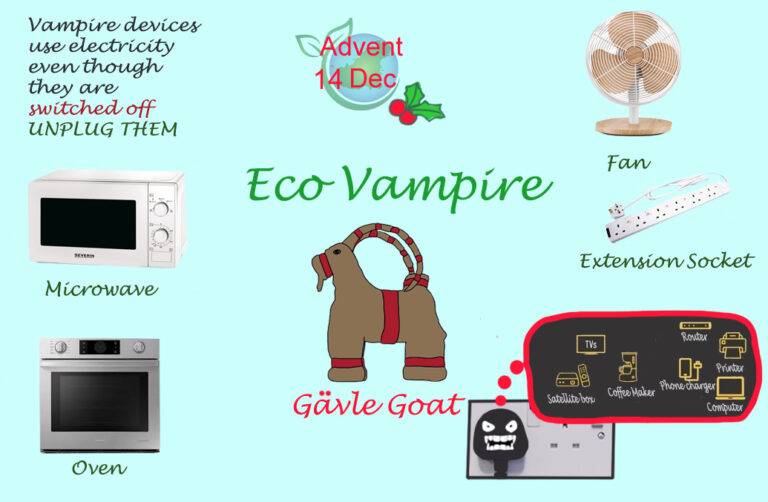31 Aug How to save money on your energy bills
Electrical devices
Look around your house and identify anything that is on standby. These devices slowly eat away at your electricity and by turning them off when you don’t use them, they will save you hundreds of pounds each year.
How can you tell if something is on standby? It often has an LED display such a cooker for the time or red light. These devices are called vampire devices.
Here are examples:
- TV
- Computer
- Microwave
- cooker
- kettle
- internet router
- dishwasher
- fan
- extension socket
- coffee maker
- phone charger
- printer
- washing machine
Your options are:
Go round each night turning them off at the wall
Plugging devices into an extension socket which is on a timer plugged into the wall
Individual devices on a timer plugged into the wall
Keep them turned off until you need to use them. Turn them off at the wall when you have finished using them.
Other options
Plug your phones and laptops in at school or work and then use them on the battery at night when you get home
DO NOT just leave your computer and or phone charging all the time. The large plug socket that they use is called a transformer and it heats up and uses electricity. What is the point of paying for this electricity when you don’t need it.
- Do you really need a freezer? It costs money to have it on all the time. You may be someone who has everything carefully labelled, and a rota for eating frozen portions when you cooked in bulk – that’s great – keep doing this. If you don’t do this then look in your freezer – does it contain food that is unlabelled, been there years. When is the last time you defrosted the freezer? Uneaten food can go back in the fridge and be reused the next day. You should not have much waste if you only cook what is needed. Let people take their own portions or give a small portion and enable seconds if people are still hungry. In general people think that they can eat more than they can and this leads to food waste and a waste of money.
- When going on holiday can you run the fridge down and turn it off. In winter when away for Christmas, you can put stuff like margarine in a plastic container in the garage. You could also put a small bag of things in the fridge at you work if you have one. When you go on holiday or away for a few days, challenge yourself to turn off all the electricity in the house or at least minimise it

Heating and Hot water
Hot water takes a lot of energy to heat. You do not need to use the amount that you do.
- Wash hands in cold water. Scientific research has shown that it is the soap that gets rid of bacteria and grime and not the temperature of the water.
- When having a cup of tea, use the mug you are going to use to fill the kettle with one cup of water. It will boil in 30 seconds and not waste money boiling a whole kettle of water that is not used. KEEP YOUR KETTLE EMPTY.
- Have short sharp showers. Can you cut down on the number of showers in the house by using the local sports centre? Don’t even think about having a bath. What about boiling a kettle of hot water and having an all over wash in the sink like they used to do during the war.
- By wearing lots of layers you can avoid putting on any heating until the temperature is lower than 18oC. It may be possible to hang in until 1 November. Have a thermostat so that the boiler only turns on when it needs to. If you can’t afford to put the heating you can just have it on for a couple of hours in the morning and evening to take off the chill. This is most effective when you have insulated your house.
- If you are on your own in a house that is freezing cold because you can’t afford to heat it, go and sit in the local library or community centre or even sports centre.
- Can you use your microwave for cooking as it is cheaper than using the oven. Can you have some meals that do not need heating or cooking such as salads etc.
- Turn your thermostat down by 1 degrees C. Don’t expect to wear t shirts in your house in winter.
- Make sure your radiator is clear of stuff. It works by convection – the heat rises and then falls. It also radiates heat directly. If it is enclosed by anything then you are heating that material rather than the room.
- Avoid using a tumble dryer. Hang your clothes out on a dryer rack in your room. This only works if you are actually heating your house!
- Avoid using a dishwasher. It is much cheaper to simply wash the dishes in a bowl the old fashioned way -rather then waiting for a full dishwasher with all the unnecessary water and heat that it uses. If you must use a dishwasher- wait until it is full up before using.
- Make sure the washing machine is full up before using and wash your clothes at 30 degrees C. Most washing powders are designed to get things clean at this temperature.
- Don’t wash things unless they actually need it. Only underwear needs to be washed after one use. Do the smell test under the arms of jumpers and shirts and the crotch of trousers to decide if they need washing. This method is tried and tested by some uni students who take it one step further and wait until the end of term to use parent’s washing machine.

Insulation
- Look in your loft. Loft insulation really makes a difference. Double up on the rolls laid down. It is not difficult to have a go. If in rented accommodation ask your landlord.
- You can seal over drafty windows for the winter and then keep the curtains closed.
- Make some draft excluders to go across the bottom of the doors.
- If you have the heating on and you feel too hot then turn the heating down- don’t open the windows.
- If you don’t use all your rooms them close some of them up for the winter.
Be aware that if you do not heat your home during winter then you may end up with damp and mould on clothes and food and walls. A good indicator that this is a problem is when your washing powder or flour is damp and sticks together. You can see mould on the walls and clothes. Mould spores can affect humans and cause respiratory disease. You can scrub mould off walls with bleach and if you keep your flour and washing powder in plastic containers with lids then they won’t go mouldy.
Lighting
- All light bulbs in your house should be low energy or even LED. You can’t buy the old inefficient light bulbs now but it is worth checking every light in the house.
- Turn the lights off when you walk out of a room if you are the only one in there. You can easily retro fit movement sensors so that the lights go on as you enter and turn off as you exit.
- You do not need security lights on all night. Change them to motion sensors.

Lots of these tips won’t make your lifestyle any more uncomfortable, will save you money and save the planet both at the same time so are good habits to make.
Some of these tips are extreme and there is no dressing up the fact that it is really unpleasant living in a cold house. No matter how many layers you have on, you can’t effectively work. Winter seems to go on for ever and it will be a good 6 months of cold living if you choose or have no choice to have any heating on.



No Comments